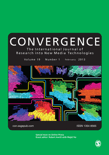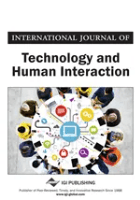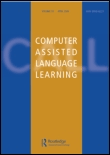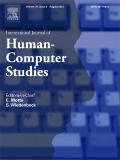
Cyberpsychology Behavior and Social Networking
Scope & Guideline
Advancing Insights into Online Interactions
Introduction
Aims and Scopes
- Digital Mental Health:
Research investigating the use of digital tools and platforms for mental health interventions, including the efficacy of virtual reality therapies, online support groups, and mobile health applications. - Social Media Impact:
Studies examining the psychological effects of social media use, including its influence on self-esteem, social anxiety, and interpersonal relationships, as well as the prevalence of phenomena like cyberbullying and online harassment. - Technology and Health Equity:
Exploration of how technology can be leveraged to improve health outcomes and access to care for marginalized populations, addressing disparities in mental health service utilization. - Virtual Reality and Immersive Technologies:
Research into the applications of virtual reality and immersive environments for therapeutic purposes, cognitive training, and educational enhancements. - AI and Human Interaction:
Investigations into the role of artificial intelligence in social interactions, including the effects of AI companions and chatbots on human emotional and psychological responses. - Cyberpsychology and Behavior Analysis:
Examinations of behavioral patterns in digital contexts, including internet addiction, online gaming, and the psychological mechanisms behind the use of technology.
Trending and Emerging
- Integration of AI in Mental Health:
There is a rising trend in exploring the role of artificial intelligence in mental health care, including the development of AI-driven therapeutic tools and their effectiveness in enhancing patient engagement. - Virtual Reality Applications in Therapy:
An increasing number of studies focus on the therapeutic applications of virtual reality, showcasing its potential to treat various psychological conditions and improve cognitive functioning. - Health Disparities and Technology:
Emerging research emphasizes the intersection of technology and health equity, investigating how digital interventions can address disparities in mental health care access and outcomes. - Impact of Digital Detoxification:
A growing interest in the effects of digital detoxification on mental well-being is evident, highlighting the importance of balancing technology use with offline experiences. - Social Media's Role in Health Communication:
Research is increasingly examining how social media platforms can be utilized for effective health communication, particularly in the context of public health crises like the COVID-19 pandemic. - The Metaverse and Psychological Implications:
There is a burgeoning interest in understanding the psychological implications of the metaverse, including its effects on identity, social interaction, and mental health.
Declining or Waning
- Traditional Media Comparisons:
Research comparing the effects of traditional media (like television) with digital platforms has decreased, suggesting a shift towards more immersive and interactive technologies. - Exclusively Negative Perspectives on Technology:
There has been a reduction in studies focusing solely on the negative implications of technology, such as addiction and mental health decline, as newer research emphasizes balanced perspectives that consider both benefits and drawbacks. - Static Analysis of Social Media Trends:
The focus on static analyses of social media trends without considering dynamic interactions is less frequent, indicating a move towards more nuanced, longitudinal, and interaction-based studies. - Cyberbullying in Isolation:
While cyberbullying remains a relevant topic, the exploration of its effects in isolated contexts has waned, as researchers now seek to understand its implications in broader social and relational frameworks. - Single-Factor Analyses of Online Behavior:
Research that examines online behavior through a singular lens, such as only focusing on addiction without considering contextual factors, is less prevalent, reflecting a trend towards more integrative approaches.
Similar Journals

Convergence-The International Journal of Research into New Media Technologies
Charting New Territories in Media Technology StudiesConvergence - The International Journal of Research into New Media Technologies, published by SAGE Publications Inc., stands at the forefront of scholarly discourse in the dynamic field of new media technologies. With an impressive impact factor reflected in its prestigious Q1 quartile rankings in both Arts and Humanities (miscellaneous) and Communication categories, this journal serves as a vital resource for researchers, professionals, and students. Since its inception in 1995, Convergence has been dedicated to exploring the intersections of media, technology, and communication, offering original research, critical reviews, and theoretical discussions that illuminate the evolving digital landscape. With a commitment to high-quality scholarship, Convergence is positioned as a premier venue for pioneering studies that shape our understanding of media technologies and their cultural implications, making it an essential read for anyone eager to stay informed and engaged with contemporary media research.

Aloma-Revista de Psicologia Ciencies de l Educacio i de l Esport
Connecting Psychology, Education, and Sports for ProgressAloma-Revista de Psicologia Ciencies de l Educacio i de l Esport, published by Ramon Llull University in Spain, serves as a pivotal platform for the dissemination of cutting-edge research across the intersecting domains of psychology, education, and sports sciences. With an ISSN of 1138-3194 and an E-ISSN of 2339-9694, Aloma is indexed in prominent databases and categorized within Q3 quartile rankings in various fields, including Psychology, Education, and Physical Therapy. This journal's accessibility and commitment to enhancing scholarly discourse make it an essential resource for researchers, practitioners, and students seeking to deepen their knowledge and advance their professional practices. Leveraging its convergence years from 2018 to 2024, Aloma aims to foster interdisciplinary understanding and innovative solutions to contemporary challenges in the social sciences and health professions, making it a vital contributor to the academic community.

International Journal of AEROSPACE Psychology
Bridging Aerospace and Psychological ScienceInternational Journal of Aerospace Psychology is a premier publication dedicated to advancing the interdisciplinary field of aerospace psychology, addressing the cognitive, emotional, and behavioral aspects of human interaction with aerospace environments. Published by Taylor & Francis Inc., this journal occupies a pivotal position in the academic landscape with its Q2 ranking in Aerospace Engineering and Q3 rankings in Applied Psychology and Computer Science Applications, reflecting its commitment to high-impact research. With an ISSN of 2472-1832 and E-ISSN of 2472-1840, it is accessible through open access options, ensuring that cutting-edge research reaches a wide audience of researchers, practitioners, and students. Covering a broad scope from psychological implications in aerospace systems to educational methodologies in this domain, the journal spans converged years from 2017 to 2024. The Scopus rankings further reinforce the journal's significance, with notable standings within multiple categories, making it an essential resource for those at the intersection of aerospace, psychology, and technology.

Human Behavior and Emerging Technologies
Unveiling the Future of Human Interaction with Emerging TechHuman Behavior and Emerging Technologies is a pioneering open-access journal published by Wiley-Hindawi, dedicated to advancing the understanding of the intersection between human behavior and technological innovation. With an E-ISSN of 2578-1863, this journal has quickly established itself as a leading platform for disseminating research from 2019 to 2024 and proudly holds a prestigious Q1 ranking in Human-Computer Interaction, Social Psychology, and Social Sciences (miscellaneous) as of 2023. Its exceptional Scopus rankings place it in the top 1% of journals in the fields of general social sciences, social psychology, and human-computer interaction, underlining its significance in an increasingly technology-driven world. The journal aims to foster interdisciplinary collaboration and explore novel approaches to human behavior, offering insights that appeal to researchers, practitioners, and students alike. As an open-access publication, it enhances accessibility to fundamental research findings that inform policy-making, technological development, and social practices in an era characterized by rapid technological advancement.

International Journal of Technology and Human Interaction
Transforming Perspectives on Technology's Role in Daily LifeInternational Journal of Technology and Human Interaction, published by IGI Global, serves as a critical platform for the exploration of the intersection between technology and human behavior, offering an interdisciplinary lens on topics within the realms of Human-Computer Interaction and Information Systems. With an ISSN of 1548-3908 and an E-ISSN of 1548-3916, this journal has been contributing to scholarly discourse since its inception in 2005, with ongoing publication until 2024. Hosting a diverse range of research articles, case studies, and reviews, the journal aims to advance the understanding of how technology influences human experience and interaction patterns in various contexts. Although currently positioned in the Q4 quartile of both Human-Computer Interaction and Information Systems categories, the journal fosters knowledge that aspires to redefine scope and standards within the field. Its commitment to quality research is reflected in its Scopus rankings, showcasing its relevance despite its emerging status in academia. Targeting researchers, professionals, and students alike, the International Journal of Technology and Human Interaction invites contributions that address the pressing challenges and innovations at the nexus of technology and human interaction.

Annual Review of CyberTherapy and Telemedicine
Connecting Minds, Transforming LivesAnnual Review of CyberTherapy and Telemedicine, published by the Interactive Media Institute, serves as a premier platform for advancing knowledge and research within the dynamic fields of cybertherapy and telemedicine. This Open Access journal, operational since 2003, is based in Belgium and has seen a convergence of contributions from 2009 to 2023. With a focus on interdisciplinary applications, the journal spans crucial areas such as computer science, neuroscience, psychology, and rehabilitation, showcasing diverse studies that impact clinical practices and patient outcomes. Despite its current Q4 quartile rankings in multiple categories, the journal aims to enhance its visibility and impact within these emerging fields, catering to researchers, practitioners, and students eager to explore advancements in therapy and remote patient care.

Journal of Politeness Research-Language Behaviour Culture
Advancing Understanding of Language and PolitenessJournal of Politeness Research-Language Behaviour Culture, published by DE GRUYTER MOUTON, serves as a leading platform in the interdisciplinary fields of communication, cultural studies, linguistics, and social psychology. With a prestigious Q1 classification in multiple categories, this journal reflects its commitment to advancing knowledge and scholarship on the nuances of language and politeness across different cultures. Operating since 2005, it offers valuable insights into the complex interplay between language behavior and social interaction, making it essential reading for researchers, professionals, and students aiming to explore and understand contemporary communicative practices. While the journal does not currently offer open access, it remains highly regarded in academic circles, evidenced by its notable Scopus rankings, including a 90th percentile in Cultural Studies and an impressive global reach. As it converges towards its 2024 milestone, contributors and readers alike engage with cutting-edge research that shapes the discourse around politeness in diverse contexts.

Computer Assisted Language Learning
Connecting Technology and Linguistics for Enhanced LearningComputer Assisted Language Learning is a prestigious journal dedicated to the interdisciplinary field of language education technology, published by Routledge Journals, Taylor & Francis Ltd. With its ISSN 0958-8221 and E-ISSN 1744-3210, the journal has become a cornerstone for researchers and practitioners interested in the innovative integration of computer technology in language learning processes. As of 2023, it holds an impressive impact factor, ranking Q1 in both Computer Science Applications and Linguistics and Language categories, indicating its significance within these scholarly domains. The journal covers a wide array of subjects, including language acquisition, educational technology, and instructional design, facilitating an understanding of how digital tools can enhance language learning experiences. Its rigorous editorial standards ensure that published articles undergo thorough peer review, making it a highly respected platform for disseminating cutting-edge research. With an extensive publication history dating back to 1990 and an ongoing commitment to exploring the dynamics of language learning in digital contexts, this journal is essential for academics, educators, and students alike who are looking to stay at the forefront of research in computer-assisted language education.

Computers in Human Behavior Reports
Advancing the dialogue between technology and human behavior.Computers in Human Behavior Reports, published by ELSEVIER, is a distinguished open-access journal dedicated to advancing interdisciplinary research at the intersection of technology and human behavior. Since its inception in 2020, the journal has quickly gained a prominent position in the academic field, attaining Q1 category rankings in multiple areas including Applied Psychology, Artificial Intelligence, Cognitive Neuroscience, Human-Computer Interaction, and Neuroscience (miscellaneous). Its robust standing is evidenced by its exceptional Scopus ranks, particularly in Neuroscience—where it is positioned 4th out of 49 journals—demonstrating a high level of influence and engagement within the community. The journal's aim is to disseminate cutting-edge research findings and foster dialogue among researchers, professionals, and students alike, thereby addressing crucial questions regarding the impact of technology on human behavior and vice versa. As an open-access publication based in the United Kingdom, it not only enhances the visibility of research but also ensures wider accessibility to groundbreaking insights that shape our understanding of human-machine interactions.

INTERNATIONAL JOURNAL OF HUMAN-COMPUTER STUDIES
Charting New Territories in Cognitive UsabilityINTERNATIONAL JOURNAL OF HUMAN-COMPUTER STUDIES, published by Academic Press Ltd - Elsevier Science Ltd, stands at the forefront of research dedicated to the dynamic interplay between humans and technology. With a remarkable impact factor reflective of its rigorous academic standards and its prestigious ranking in the Q1 category across vital disciplines such as Education, Engineering, Human Factors and Ergonomics, and Human-Computer Interaction, this journal serves as an essential resource for researchers, professionals, and students alike. Spanning from 1994 to 2024, it showcases pioneering studies that contribute significantly to the understanding of cognitive processes, usability, and the evolving role of technology in society. Despite the absence of Open Access options, access to this journal is facilitated through institutional subscriptions, ensuring that critical findings and advancements are readily available to a global audience. By continuing to publish high-quality research, the INTERNATIONAL JOURNAL OF HUMAN-COMPUTER STUDIES plays a crucial role in advancing the field, fostering innovation, and guiding future research directions.